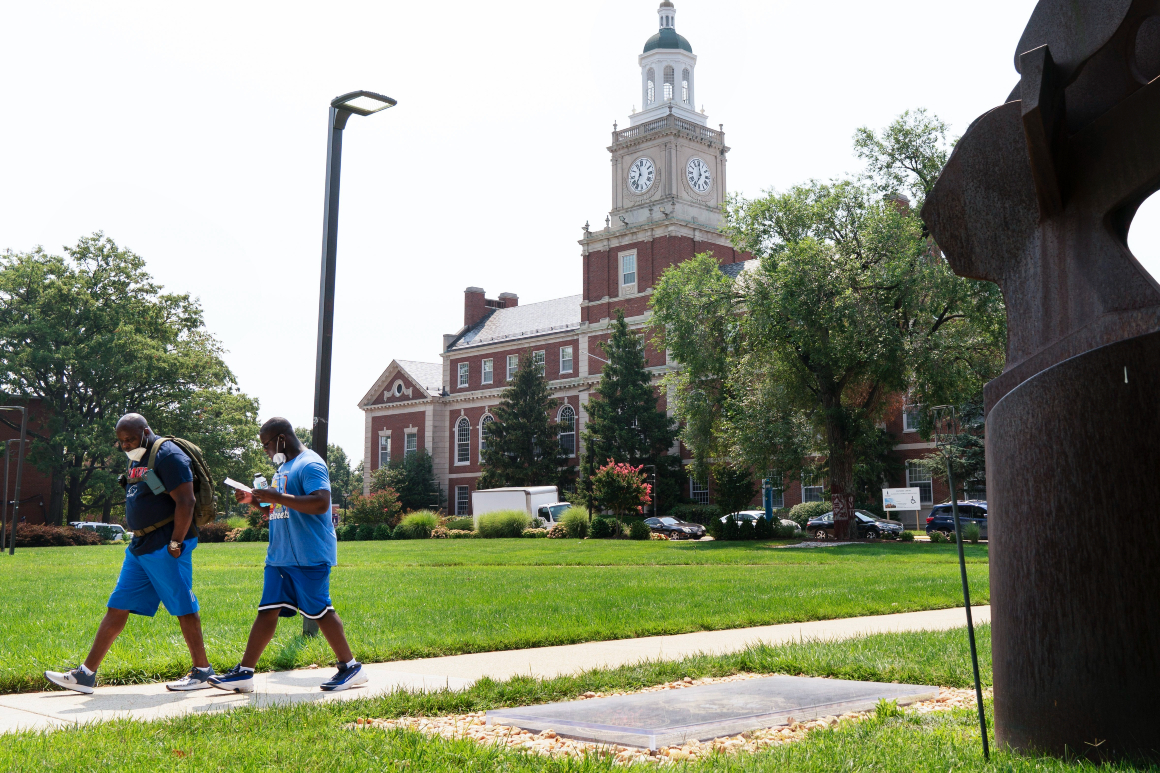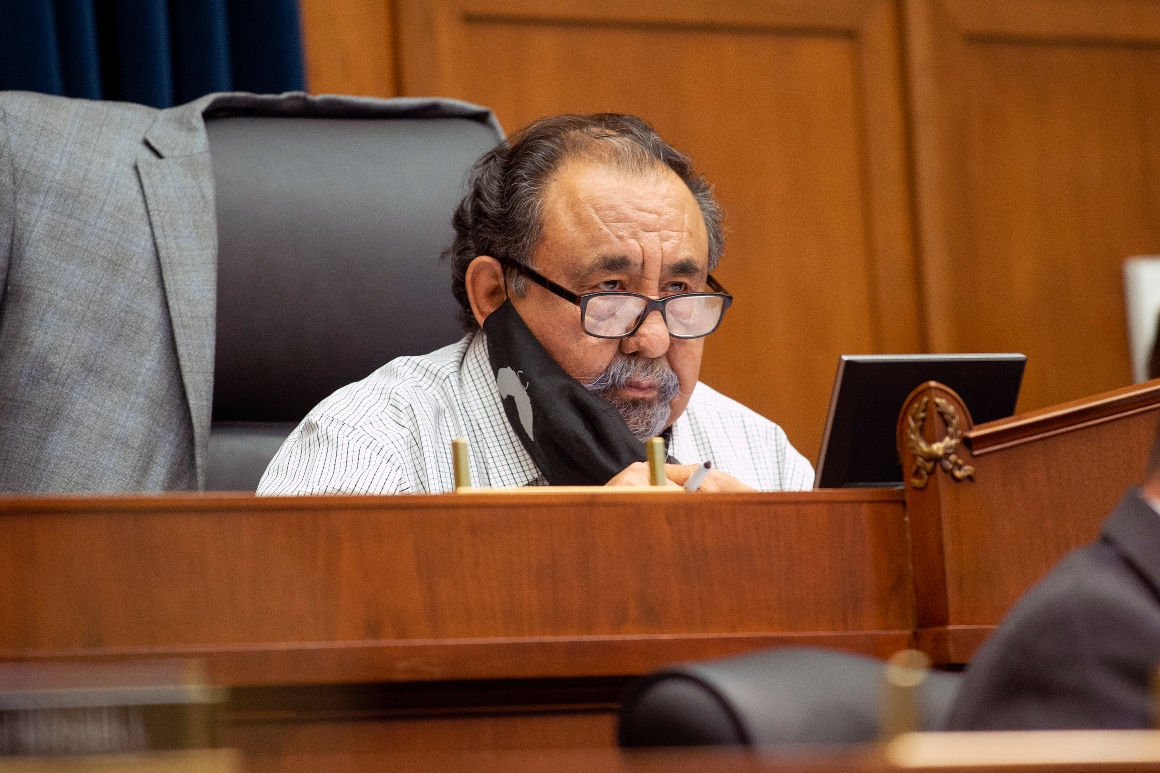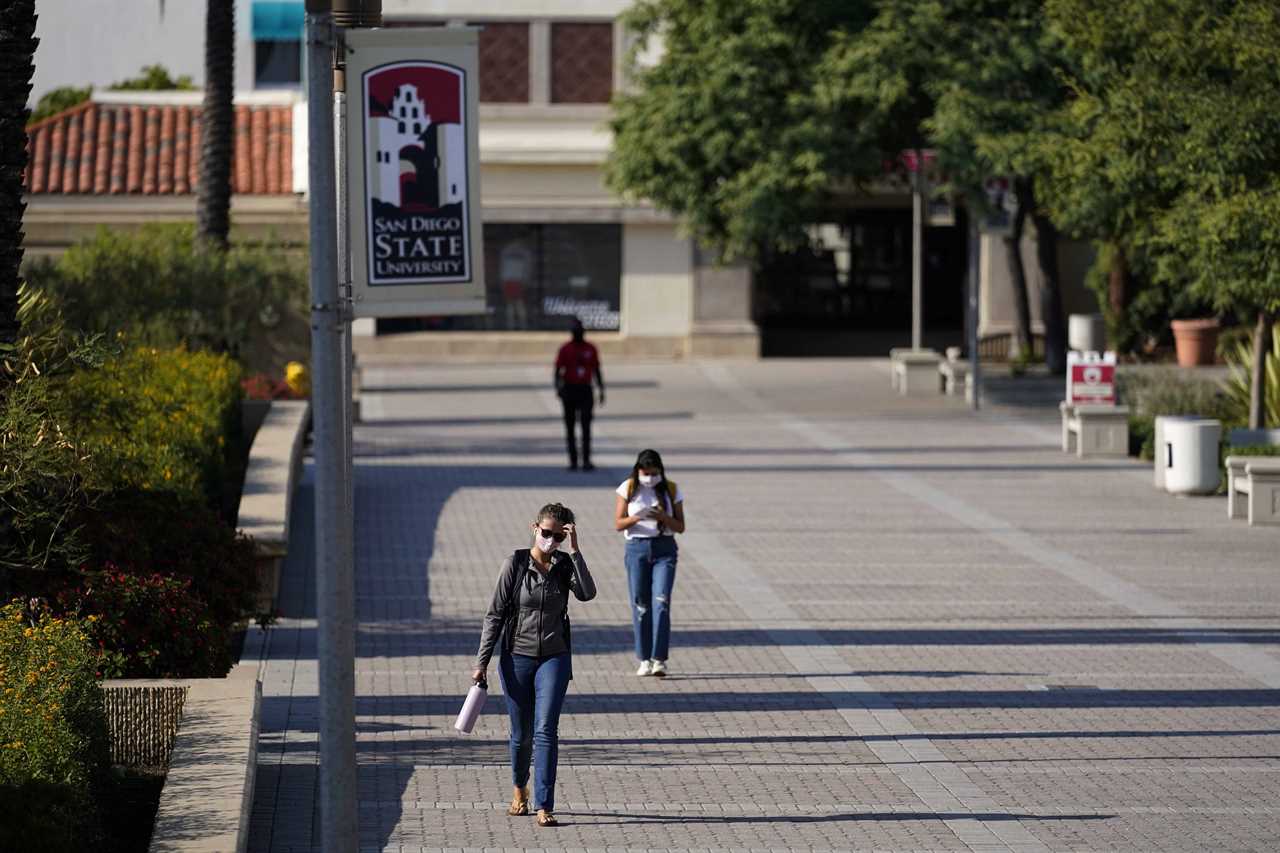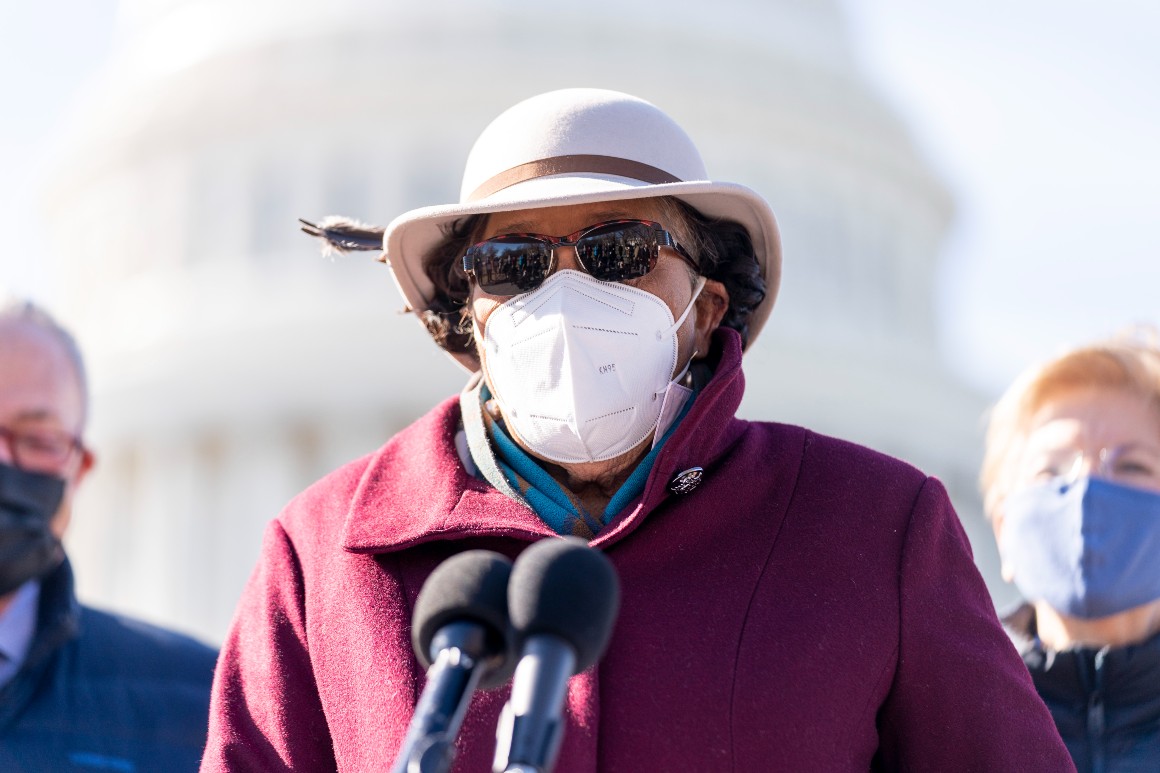
President Joe Biden’s Build Back Better plan is setting up a conflict between Hispanic-serving colleges and historically Black institutions — with both vying for the same resources to address inequities for underserved populations.
HBCUs have built a collective brand, getting renewed presidential attention since the Trump administration and using their political clout to push Congress for money to upgrade aging campuses they say have long been underfunded by the federal government. Hispanic-serving institutions, which number more than five times as many across the U.S. as the approximately 100 HBCUs, say their institutions have also been overlooked.
For Latino education groups, leveraging their growing representation is part of the politics.
The head of the Education Department is Latino, and the latest census data has removed any doubt about the potential clout of the community. The way House Democrats wrote the multitrillion-dollar reconciliation measure — which would require minority-serving institutions to compete for billions of dollars — has also mobilized Latino higher education advocates. They are wielding influence in Congress — even at the risk of alienating HBCU advocates who are better known on Capitol Hill.

“It’s a resource question,” said Rep. Raúl Grijalva (D-Ariz), a co-chair of the Congressional Hispanic-Serving Institutions Caucus, who supports adding more money to the grants, though Democrats are looking to pare down the size of the bill. “We should not be getting into robbing Peter to pay Paul, or fighting over an amount that doesn't satisfy the needs of respective groups of people.”
He cautions that a competition for resources could create strife between education advocates who could benefit from allyship.
“It’s difficult only because I don't want to add to a division that is unnecessary right now,” he said while noting Democrats are still trying to get their struggling bill over the finish line. “As communities of color, it's best to be as unified as possible going forward.”
Advocates for Latino students have rallied throughout the summer and fall to make sure Latino students aren’t shortchanged in what the Biden administration has billed as a once-in-a-generation investment.
Undocumented students could get access to federal financial aid through the social spending package. Resource-poor HSIs and other minority-serving institutions would be allotted billions in grant funding for research and development. And Biden’s push for free community college could make higher education more affordable for their students, as 52 percent of Hispanic undergraduates attend these institutions.
But some Latino education groups also want federal dollars for Latino students in K-12 classrooms or migrant students, making it harder for lawmakers to focus on the one subject Latino student advocates find most pressing: College.
“We have so many areas of interest and focus, it's really been more of a challenge to figure out how we consolidate that power base around an agenda that addresses the pathway in the pipeline and Latinos in higher education,” Deborah Santiago, CEO of Excelencia in Education, an organization that advocates for Latino college students, said in an interview.
What the groups want
Sens. Bob Menendez (D-N.J.) and Alex Padilla (D-Calif.) launched the Senate’s first caucus devoted to Hispanic-serving institutions last month, just days after the Biden administration launched a new initiative devoted to Hispanic academic achievement. And with Donald Trump out of the White House, many Latino education advocates and their allies in Congress say they are pressing whatever advantage they can with the Biden administration after four years of pent up frustration.
“We have an opportunity here not only to advocate, but also to help design what goes forward,” Grijalva said of the Biden administration. “It's not just having a seat at the table. It is having the resources to do something with that seat.”
Despite the sweeping education programs already outlined in the Democrats’ reconciliation bill on free community college and universal pre-K, groups representing Hispanic students want more and representatives for Hispanic-serving institutions are among the most vocal in the halls of Congress.
“We have known all along that HSIs have always historically been underfunded and have been neglected by Congress and the administration, regardless of party or who is in control,” Hispanic Association of Colleges and Universities President Antonio Flores said in an interview. “We as an association have been pushing for change to make sure that they are treated equitably and fairly.”

They want a college completion fund to boost graduation rates, targeted goals to increase recruitment and retention of diverse teachers and fewer barriers to applying for federal financial aid, among other requests.
To become an HSI, a college or university must have a Hispanic student enrollment of at least 25 percent for full-time students.
“HSIs are the clearest vehicle in our federal policy to support Hispanic students with targeted resources,” Excelencia in Education’s Santiago said. “But the reality is not all HSIs are intentionally serving.”
Because the funding formula is focused on enrollment, Santiago wants lawmakers to “discern those that are really serving” compared with institutions that are merely enrolling Latino student so limited federal dollars can be properly targeted to schools with the best academic outcomes.
Another sticking point is more mundane: Many members of Congress don’t know what Hispanic-serving institutions are.
“We are the new kid on the block in terms of having been recognized by federal legislation for the first time in 1982, where as HBCUs, obviously, have been around since more than 100 years ago,” Flores said. “We have to catch up in brand recognition.”
Ruffling feathers
On the higher education front, increased advocacy could cause tension between Hispanic-serving institutions and other minority-serving institutions as they fight over the same small pot of money in the multitrillion-dollar social spending package.
The Build Back Better Act looks to allot $2 billion for research and development infrastructure and $1.5 billion in new funding for direct aid to all minority-serving institutions — an ill-considered division of dollars HBCU and HSI advocates say.
HBCUs want Democrats to include the IGNITE HBCU Excellence Act — sponsored by Rep. Alma Adams of North Carolina, stalwart of the Bipartisan Historically Black Colleges and Universities Caucus — in the spending bill, which would help their institutions upgrade campus facilities. They also want the money for grants already written in the measure to be split into separate pots, allowing HBCUs to only compete with other HBCUs for grants.
Adams has said she would vote against the Democrats’ social spending bill unless congressional leadership boosted funding for HBCUs. She has also vowed to get her HBCU infrastructure bill, which has more than 100 co-sponsers, passed even if it is not included in the spending package.
“You can’t build back better, in my opinion, without building HBCUs back better,” she said.

HACU, the most prominent lobbying group for HSIs, wants lawmakers supporting the HBCU infrastructure legislation to change the bill to allot 39 percent for HSIs — the biggest slice of the bill — and leave 33 percent for HBCUs. The group says this would be the same breakdown as the Coronavirus Response and Relief Supplemental Appropriation Act’s mandatory funding formula. However, the bill’s proposed formula would provide over 42 percent for HBCUs and 18 percent for HSIs.
Flores of HACU says his group’s allotment would still be “far from fair” but more equitable for the institutions.
It is “in the best interest of the nation” to invest more in Hispanic-serving institutions, he said. They’re “not only educating 5.3 million students and two-thirds of the 3.6 million Hispanics in college, but they also are educating more than twice as many African Americans as all the HBCUs combined."
HACU, though in favor of the IGNITE HBCU Excellence Act, could be presenting a barrier to HBCU groups who are looking for the right formula for doling out money to minority-serving institutions, which greatly vary by size and institutional wealth.
The California State University system, which has 21 out of 23 campuses designated as HSIs, has a deferred maintenance backlog of about $4 billion and the need increases by about $307 million per year, as projected over the next 10 years, Soraya Coley, president of California State Polytechnic University, Pomona, told lawmakers and their staff at an HSI briefing. The University of La Verne, a private college designated as an HSI, has estimated $70 million over the next 10 years for facility maintenance.
Mike Flores, Alamo Colleges District chancellor, urged lawmakers at the briefing to establish an HSI capital financing program with an appropriation level of $10 billion to address pressing infrastructure needs.
Flores’ community college district of five campuses holds the only college in the nation — St. Philip's College in San Antonio — designated as both an HBCU and HSI. He told lawmakers that because HBCUs were appropriated more money than other universities and colleges in Covid relief packages, he’s seen firsthand at St. Philip’s College how the cash was used to also invest in technology enhancements on campus for their cyber, automotive and health programs. But the other four HSIs had to use their money on student aid, “due to the smaller amounts that they received, in contrast to the HBCU funds.”
“I do not want the focus … to be viewed as HSIs versus other minority serving institutions,” he said. “We do want to emphasize … that each HSI cohort of colleges and universities receive a fair share of funding proportionate to the number of institutions that it represents or to the number of students that we enroll.”
----------------------------------------
By: Bianca Quilantan
Title: Biden plan pits Hispanic-serving colleges against HBCUs
Sourced From: www.politico.com/news/2021/10/20/biden-hispanic-serving-colleges-hbcus-516267
Published Date: Wed, 20 Oct 2021 03:30:27 EST






